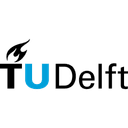This course is part of Hands-on Quantum Computing & Internet Applications.
This comprehensive course introduces quantum computing with a practical focus, emphasizing hardware understanding and real-world applications. Developed by experts from QuTech research center at Delft University of Technology, it goes beyond theory by providing hands-on experience with Quantum Inspire (QI) platform. You'll learn about quantum computer components, explore the superposition principle and quantum entanglement concepts, and gain practical programming skills. What distinguishes this course is the opportunity to execute quantum algorithms on actual quantum hardware through QuTech's Quantum Inspire platform. Starting with quantum hardware fundamentals and algorithm overview, you'll progress to practical programming using cQASM (a specialized quantum programming language) and the QI Software Development Kit (SDK). By course completion, you'll have essential tools for developing quantum computing applications and join a growing community of quantum developers. EU participants receive a QTIndu certificate upon successful completion.
Instructors:
English
English
What you'll learn
Recognize the purpose and capabilities of Quantum Inspire
Understand the basic components and working principles of quantum computers
Explore example protocols and applications of quantum computing
Use cQASM to program and run quantum algorithms using Quantum Inspire
Develop customized quantum algorithms with the Quantum Inspire Software Development Kit (SDK)
Skills you'll gain
This course includes:
PreRecorded video
Graded assignments, exams
Access on Mobile, Tablet, Desktop
Limited Access access
Shareable certificate
Closed caption
Get a Completion Certificate
Share your certificate with prospective employers and your professional network on LinkedIn.
Created by
Provided by

Top companies offer this course to their employees
Top companies provide this course to enhance their employees' skills, ensuring they excel in handling complex projects and drive organizational success.





There are 4 modules in this course
This course provides a practical introduction to quantum computing focusing on hardware understanding and applications. In the first week, students explore the Quantum Inspire platform, learning about quantum computer components, hardware and simulator platforms, qubits, gates, and quantum compilers. Week two covers quantum advantage and practical applications of quantum computing, examining specific algorithms and use cases. The third week introduces cQASM (quantum programming language), teaching students to write basic and advanced applications. The final week focuses on the Quantum Inspire Software Development Kit (SDK), guiding students through installation, running quantum algorithms, and using QisKit to build custom quantum applications. Throughout the course, students gain hands-on experience with QuTech's simulators and real quantum hardware to develop practical skills in quantum computing.
Introduction to Quantum Inspire (QI)
Module 1
Applications of a Quantum Computer
Module 2
cQASM – quantum programming language
Module 3
QI Software Development Kit
Module 4
Fee Structure
Individual course purchase is not available - to enroll in this course with a certificate, you need to purchase the complete Professional Certificate Course. For enrollment and detailed fee structure, visit the following: Hands-on Quantum Computing & Internet Applications
Payment options
Financial Aid
Instructors

2 Courses
Pioneer in Quantum Software Development
Fer Grooteman serves as Software Engineering Lead at QuTech, TU Delft, where he leads the Software Development and Support Team (SDST). After graduating in Computer Science from the University of Twente in 1993, he built extensive experience in software engineering across various domains. Since joining QuTech in 2018, he has led development of public-facing quantum technology platforms including Quantum Inspire and Quantum Network Explorer. His expertise spans software engineering processes and high-quality software development, with particular focus on creating demonstrator platforms that make quantum technology accessible to the public. Under his leadership, the SDST team has expanded from one to four members, focusing on developing and maintaining complex systems while fostering collaboration across the organization. His work has been instrumental in advancing QuTech's mission through the development of user-friendly quantum computing interfaces and research support tools.

1 Course
PhD Candidate at Delft University of Technology
Building a quantum computer not only requires precise experimental work and expertise, but also a deep understanding of the microscopic and emergent phenomena of the quantum world.
Testimonials
Testimonials and success stories are a testament to the quality of this program and its impact on your career and learning journey. Be the first to help others make an informed decision by sharing your review of the course.
Frequently asked questions
Below are some of the most commonly asked questions about this course. We aim to provide clear and concise answers to help you better understand the course content, structure, and any other relevant information. If you have any additional questions or if your question is not listed here, please don't hesitate to reach out to our support team for further assistance.



